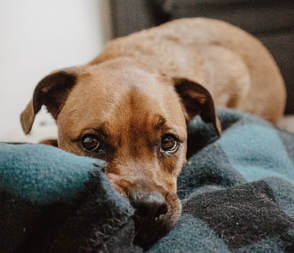Laurie Anne Walden, DVM  On December 3, the Food and Drug Administration (FDA) warned pet owners of potentially toxic vitamin D levels in some dog foods. The affected foods have been recalled. A list of recalled brands is posted on the FDA website: https://www.fda.gov/AnimalVeterinary/NewsEvents/ucm627485.htm. Vitamin D: both an essential nutrient and a poison Vitamin D helps regulate calcium and phosphorus levels in the body. This vitamin is necessary for bone health and for normal muscle and nerve function. Vitamin D is fat soluble, not water soluble, so the body stores extra vitamin D in the liver and fatty tissues instead of expelling it in the urine. Excessive levels of cholecalciferol, the active form of vitamin D, lead to dangerously high levels of calcium and phosphorus in the blood. Calcium deposits form in body tissues, especially tissues that have a large blood supply, like the kidneys. Mineral deposits in the kidneys cause kidney failure, which is the usual cause of death in animals with vitamin D poisoning. Rodenticides (rat and mouse poisons) that contain cholecalciferol are typical sources of vitamin D poisoning in pets. Even small amounts of cholecalciferol-containing rodenticides can cause severe kidney damage in dogs and cats. Human vitamin supplements and contaminated pet foods can also cause cholecalciferol toxicosis in pets. According to the FDA, some of the recalled dog foods contained 70 times the expected level of vitamin D. Symptoms of vitamin D poisoning Watch for these symptoms, especially if your dog has been eating one of the recalled foods:
Signs of poisoning usually appear within a day or two after an animal ingests a toxic level of vitamin D. By this time, the kidneys have already been affected. Blood tests show increased levels of calcium, phosphorus, and markers of kidney disease. What you should do If your dog has been eating one of the recalled diets, stop feeding the diet immediately. The FDA recommends disposing of the food in such a way that other animals (including wildlife) and children cannot reach it. Seek veterinary care immediately if you think your pet might have vitamin D poisoning. The symptoms are not specific to vitamin D toxicosis (lots of things cause vomiting), so your veterinarian will perform bloodwork and possibly other diagnostic tests. Take either the bag of dog food or a photo of the label, including the lot number, to the clinic with you if your dog might have eaten a recalled food. The sooner treatment starts, the better the chance of recovery. Treatment involves hospitalization for several days, intravenous fluids, medications to help flush calcium out of the body and support kidney function, and repeated blood tests to monitor kidney function and levels of calcium and phosphorus. The FDA suggests that pet owners and veterinarians report possible cases of vitamin D poisoning through the online Safety Reporting Portal. For more information FDA Alerts Pet Owners about Potentially Toxic Levels of Vitamin D in Several Dry Pet Foods, FDA.gov website Cholecalciferol, Pet Poison Helpline website Cholecalciferol, Merck Veterinary Manual website Photo by Ruby Schmank on Unsplash Comments are closed.
|
AuthorLaurie Anne Walden, DVM Categories
All
Archives
June 2024
The contents of this blog are for information only and should not substitute for advice from a veterinarian who has examined the animal. All blog content is copyrighted by Mallard Creek Animal Hospital and may not be copied, reproduced, transmitted, or distributed without permission.
|
- Home
- About
- Our Services
- Our Team
-
Client Education Center
- AKC: Spaying and Neutering your Puppy
- Animal Poison Control
- ASPCA Poisonous Plants
- AVMA: Spaying and Neutering your pet
- Biting Puppies
- Boarding Your Dog
- Caring for the Senior Cat
- Cats and Claws
- FDA warning - Bone treats
- Force Free Alliance of Charlotte Trainers
- Getting your Cat to the Vet - AAFP
- Holiday Hazards
- How To Feed Cats for Good Health
- How to Get the Most Out of your Annual Exam
- Indoor Cat Initiative - OSU
- Introducing Your Dog to Your Baby
- Moving Your Cat to a New Home
- Muzzle Training
- Osteoarthritis Checklist for Cats
- What To Do When You Find a Stray
- Our Online Store
- Dr. Walden's Blog
- Client Center
- Contact
- Cat Enrichment Month 2024
|
Office Hours
Monday through Friday 7:30 am to 6:00 pm
|
Mallard Creek Animal Hospital
2110 Ben Craig Dr. Suite 100
|
Site powered by Weebly. Managed by IDEXX Laboratories

 RSS Feed
RSS Feed